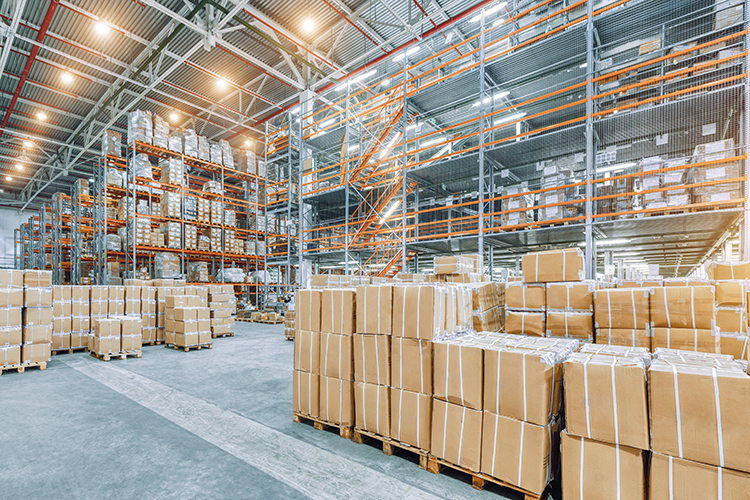
What is the Strategic National Stockpile?
The Strategic National Stockpile is “the nation’s largest supply of life-saving pharmaceuticals and medical supplies for use in a public health emergency severe enough to cause state and local supplies to run out.” It was first conceived in 1999 to provide the Centers for Disease Control and Prevention a mechanism to purchase and store reserves of pharmaceuticals and vaccines for use against chemical and biological threats that might impact the civilian population. After September 11, 2001, the stockpile’s role grew to include procuring important pharmaceutical and medical supplies that would be needed in the event of a terrorist attack, and responsibility to oversee the stockpile was transferred to the Department of Homeland Security. Today the Strategic National Stockpile is overseen by the Department of Health and Human Services, Assistant Secretary for Preparedness and Response (“ASPR”).
What the COVID-19 Pandemic Revealed about the Strategic National Stockpile
In March 2020 as the COVID-19 pandemic took root across the United States, critical shortages of medicines and personal protective equipment (PPE) were headline making news. The Strategic National Stockpile was unable to meet the demand for the very scenario it had been designed to address. Among the shortcomings exposed during the pandemic have been ventilators that didn’t work, expired N95 masks and drugs that were past their expiration.
Unfortunately, this was not a complete surprise. A 2017 Inspector General report concluded that “the Strategic National Stockpile could be at risk in case of a public health emergency.” Some of these failures can be attributed to mismanagement, but with more than $6 Billion in medicines and medical supplies warehoused at locations around the United States the Strategic National Stockpile is a valuable target for fraudsters. By design, contractors to the stockpile sell things that are not intended for immediate use. It could be months or years before the government catches on to non-conforming PPE or expired medicines.
Strategic National Stockpile 2.0
As a result of the catastrophic failure of the Strategic National Stockpile to meet the country’s needs early in the pandemic, the ASPR initiated several reforms and rolled out Strategic National Stockpile 2.0. Among the first priorities for Stockpile 2.0 was a March 2020 solicitation for the procurement of 500 Million N95 masks. In the N95 solicitation, the ASPR has made clear key criteria for contracting with the Strategic National Stockpile. Overstating an ability to meet these criteria, or falsifying records to appear to conform to these requirements could give rise to False Claims Act liability.
The “mandatory” criteria to sell the life-saving N95 masks are being an “authorized reseller of N95 respirators that are manufactured by domestic manufacturers or manufactured in countries eligible for consideration under the Trade Agreements Act (TAA); or a domestic manufacturer of N95 respirators; or a manufacturer eligible for consideration under the TAA. Offerors representing Non-domestic manufacturers must [also] certify that the N95 Respirator(s) proposed are compliant with TAA in accordance with Federal Acquisition Regulation (FAR) provision 52.225- 6.” In addition, bidders must provide items that are either “National Institute for Occupational Safety and Health (NIOSH)-approved N95 filtering Facepiece Respirator[s], or NIOSH-approved and FDA cleared, surgical N95 Respirator[s].”
The solicitation also sets forth Technical Criteria including manufacturing capability to produce compliant masks, ability to meet the production schedule, the shelf-life left on the masks when purchased, the contractor’s past performance record with the government, and “because risk of excessive pricing is a major concern” evaluation of which proposals “offer the best value to the agency.”
How you Can Help
While the government has launched Strategic National Stockpile 2.0 and begun solicitations to procure the medicines and supplies needed all around the country, it is ill-equipped to identify the fraudsters looking for a part of the billions it spends every year. Moreover, because the stockpile is also “strategic” contracts like the N95 solicitation prohibit press releases or promotion of the contract awards by the contractors who make winning bids. The government doesn’t want to publicize where its supplies come from lest they become targets themselves. An important consideration, obviously, but it makes the entire process less transparent and more vulnerable to fraud. People with knowledge about these contracts are uniquely situated to help prevent the same problems in Stockpile 2.0 that plagued version 1.0. If you have information about a fraud on the Strategic National Stockpile, please call us or fill out the form below for a free and confidential consultation.
Who we are
Keller Grover LLP
Whistleblower cases require lawyers litigating them to prove a fraud while protecting their client who typically learns of the fraud at work. While many law firms have experience dealing with fraud cases or employment issues, few are experienced enough to handle both issues together. The lawyers at Keller Grover have over 30 years of experience litigating both fraud and employment matters, and more than a decade of experience litigating cases involving violations of the federal False Claims Act and the state equivalents. We have secured groundbreaking decisions interpreting these laws on numerous issues relevant to all whistleblowers. We are also regularly featured speakers on all aspects of our law practice to audiences including other qui tam lawyers and government lawyers. We have secured judgments totaling tens of millions in recovery to taxpayers. This rare combination makes Keller Grover uniquely qualified to represent whistleblowers.
Contact Us
If you have information about a fraud on the Strategic National Stockpile, please call us or fill out the form below for a free and confidential consultation.